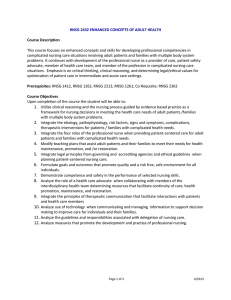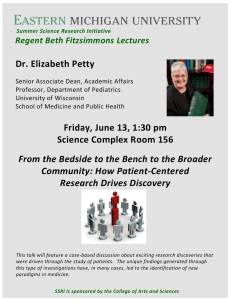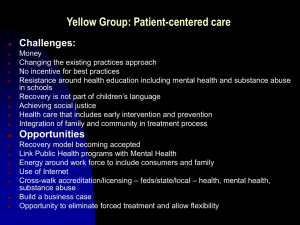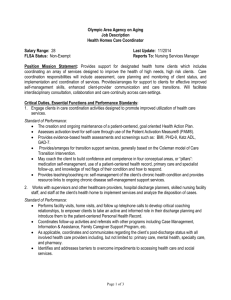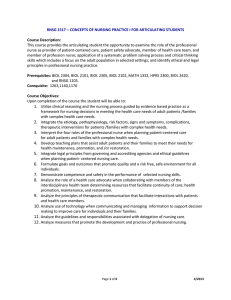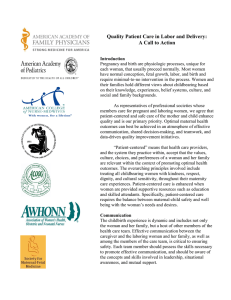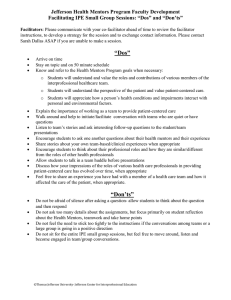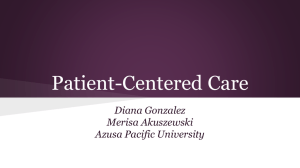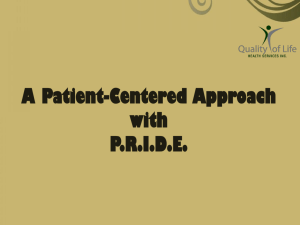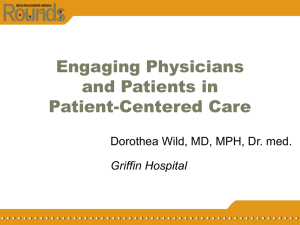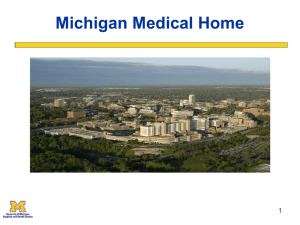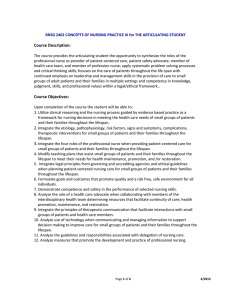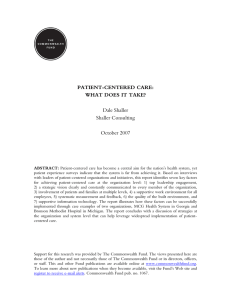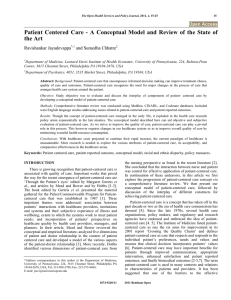Course Description:
advertisement
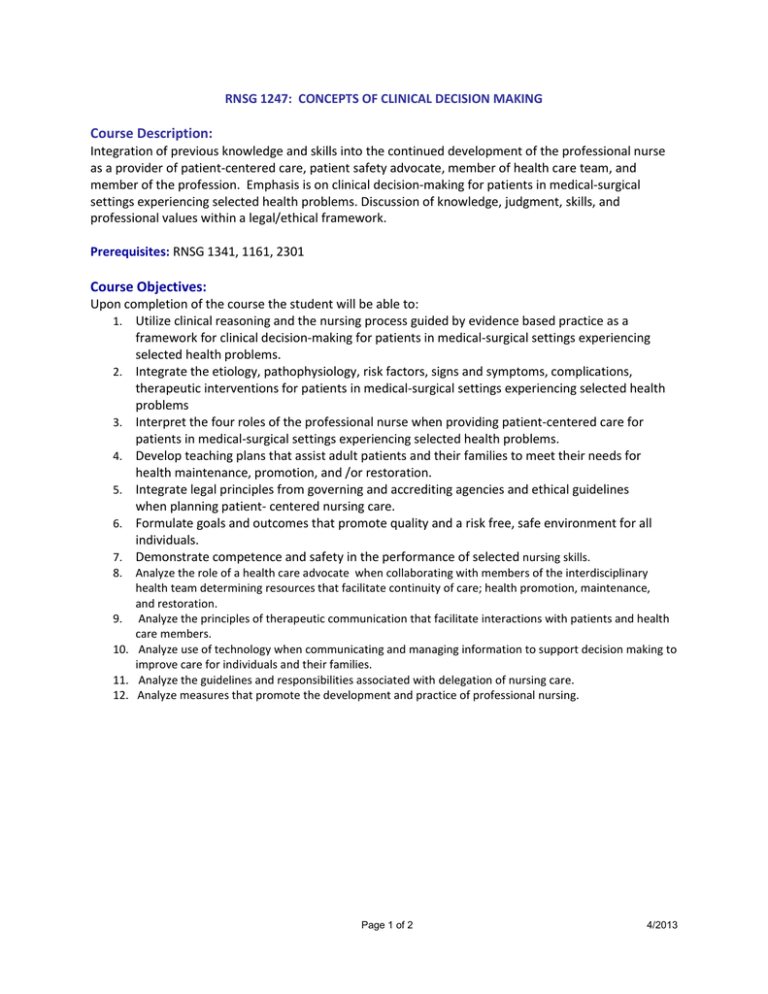
RNSG 1247: CONCEPTS OF CLINICAL DECISION MAKING Course Description: Integration of previous knowledge and skills into the continued development of the professional nurse as a provider of patient-centered care, patient safety advocate, member of health care team, and member of the profession. Emphasis is on clinical decision-making for patients in medical-surgical settings experiencing selected health problems. Discussion of knowledge, judgment, skills, and professional values within a legal/ethical framework. Prerequisites: RNSG 1341, 1161, 2301 Course Objectives: Upon completion of the course the student will be able to: 1. Utilize clinical reasoning and the nursing process guided by evidence based practice as a framework for clinical decision-making for patients in medical-surgical settings experiencing selected health problems. 2. Integrate the etiology, pathophysiology, risk factors, signs and symptoms, complications, therapeutic interventions for patients in medical-surgical settings experiencing selected health problems 3. Interpret the four roles of the professional nurse when providing patient-centered care for patients in medical-surgical settings experiencing selected health problems. 4. Develop teaching plans that assist adult patients and their families to meet their needs for health maintenance, promotion, and /or restoration. 5. Integrate legal principles from governing and accrediting agencies and ethical guidelines when planning patient- centered nursing care. 6. Formulate goals and outcomes that promote quality and a risk free, safe environment for all individuals. 7. Demonstrate competence and safety in the performance of selected nursing skills. 8. Analyze the role of a health care advocate when collaborating with members of the interdisciplinary health team determining resources that facilitate continuity of care; health promotion, maintenance, and restoration. 9. Analyze the principles of therapeutic communication that facilitate interactions with patients and health care members. 10. Analyze use of technology when communicating and managing information to support decision making to improve care for individuals and their families. 11. Analyze the guidelines and responsibilities associated with delegation of nursing care. 12. Analyze measures that promote the development and practice of professional nursing. Page 1 of 2 4/2013 COURSE CONTENT Module – Providing Patient-Centered Care for the Individual with an Infectious Diseases HIV/ AIDS Bacterial infections o Gonorrhea, Syphillis, Chlamydia Viral infections o Genital Herpes, Genital warts Module – Providing Patient-Centered Care for the Individual with a Respiratory Infection Tuberculosis Module - Providing Patient-Centered Care for the Individual with a Female Reproductive Disorder Breast Cancer Breast conditions – fibrocystic breast disorder Menstrual Disorders o Premenstrual syndrome o Dysmennorrhea;Oligomenorrhea, amenorrhea, menorhagia, metrorrhagia o Menopause Pelvic Inflammatory Disease Endometriosis Cancers – cervical, endometrial, ovarian, vaginal, vulvar Problems with pelvic support - Cystocele/ rectocele Module - Providing Patient-Centered Care for the Individual with an Endocrine Disorder Hyperthyroidism / Hypothyroidism Hyperparathyroidism / Hypoparathyroidism Module - Providing Patient-Centered Care for the Individual with a Disorder of the Gastrointestinal Tract/Accessory Organs Gallbladder diseases – Cholecystitis; Cholelithiasis Acute pancreatitis Module – Providing Patient-Centered Care for the Obese Individual Obestiy Module – Providing Patient-Centered Care for the Individual with a Disorder of the Musculoskeletal System Osteomyelitis, Osteoporosis Osteoarthritis / Rheumatoid arthritis Gout Systemic Lupus Erythematosus Skills Labs: Phlebotomy Central Line Dressing Change Tracheostomy Care Tracheostomy Suctioning Page 2 of 2 4/2013
